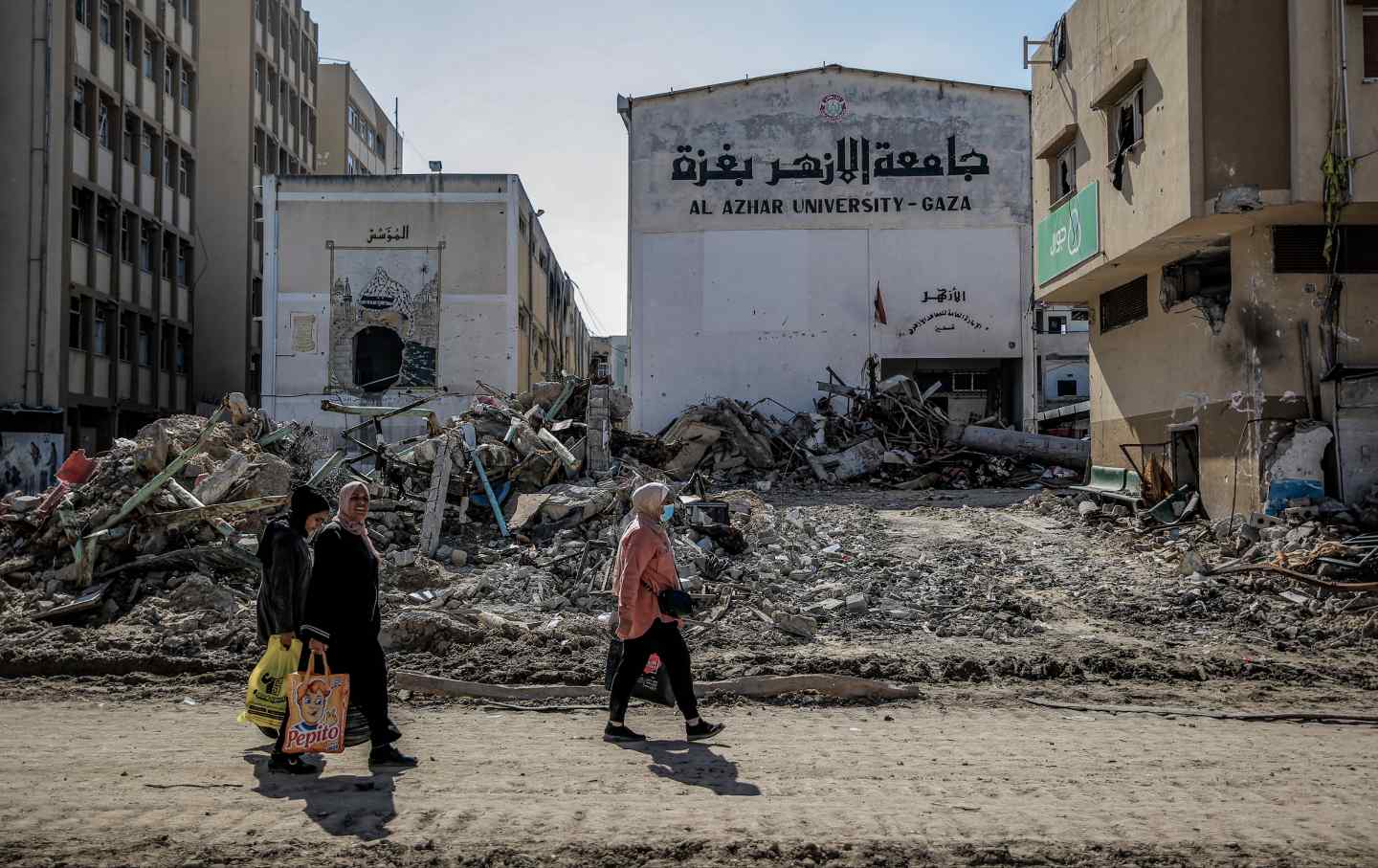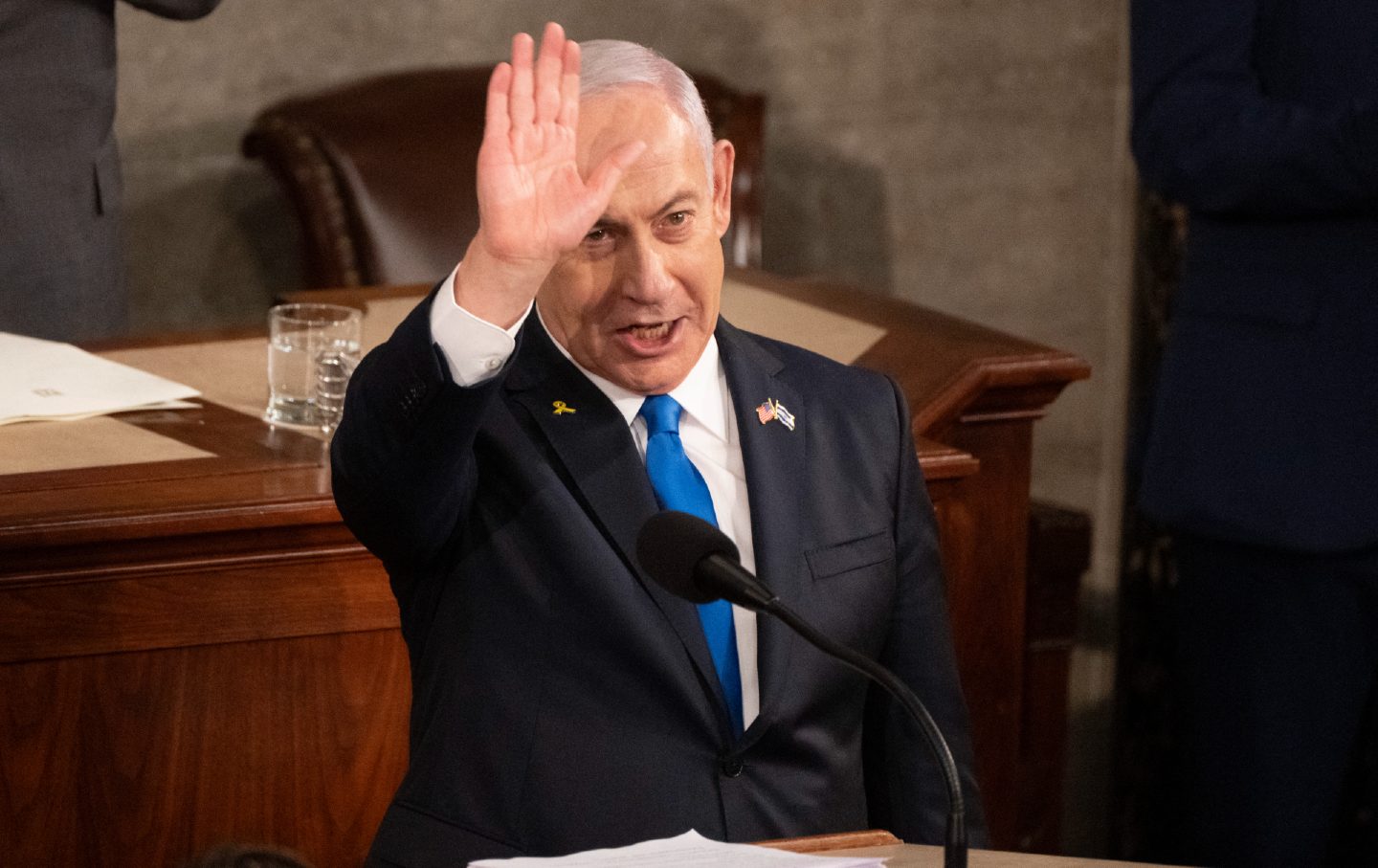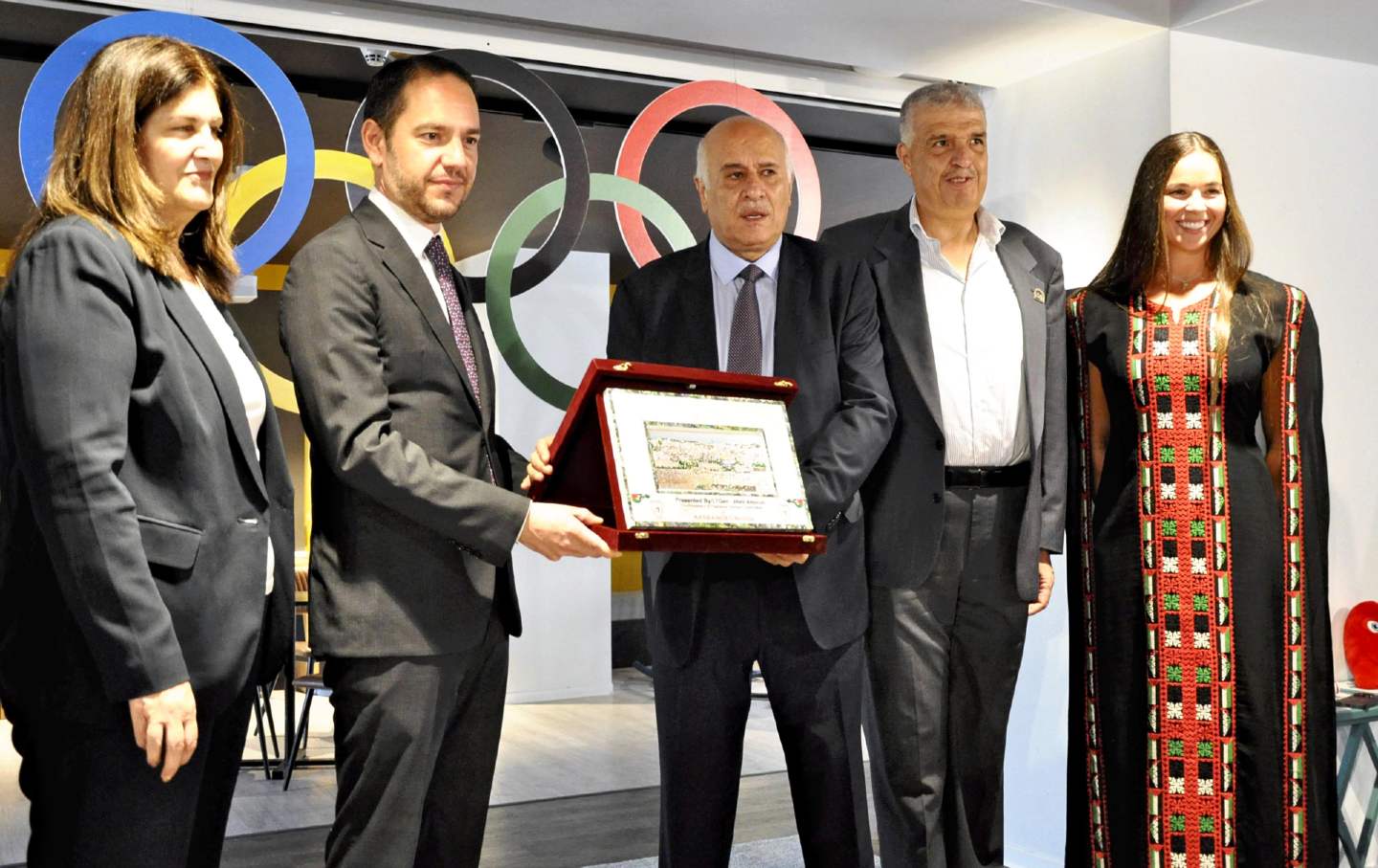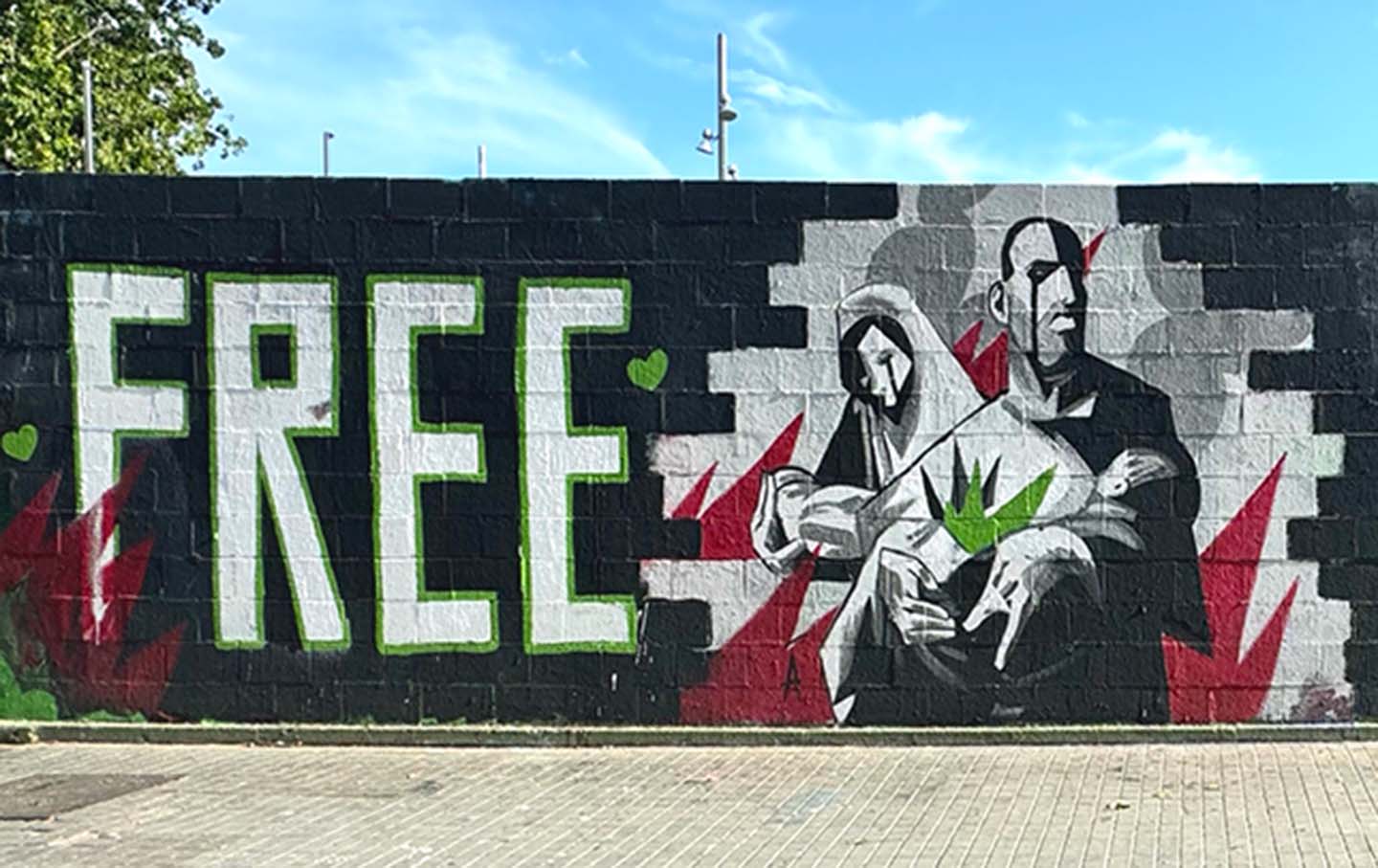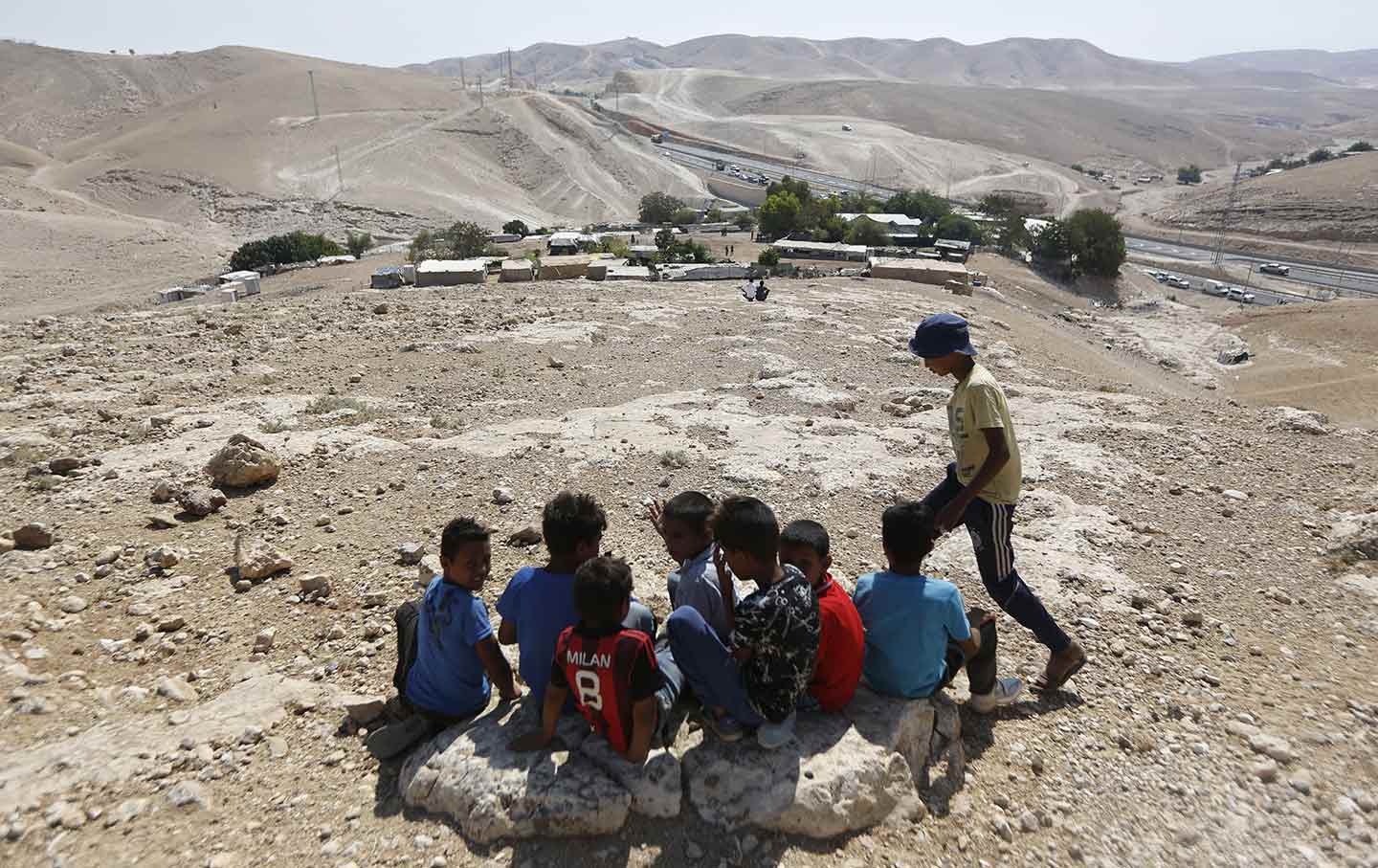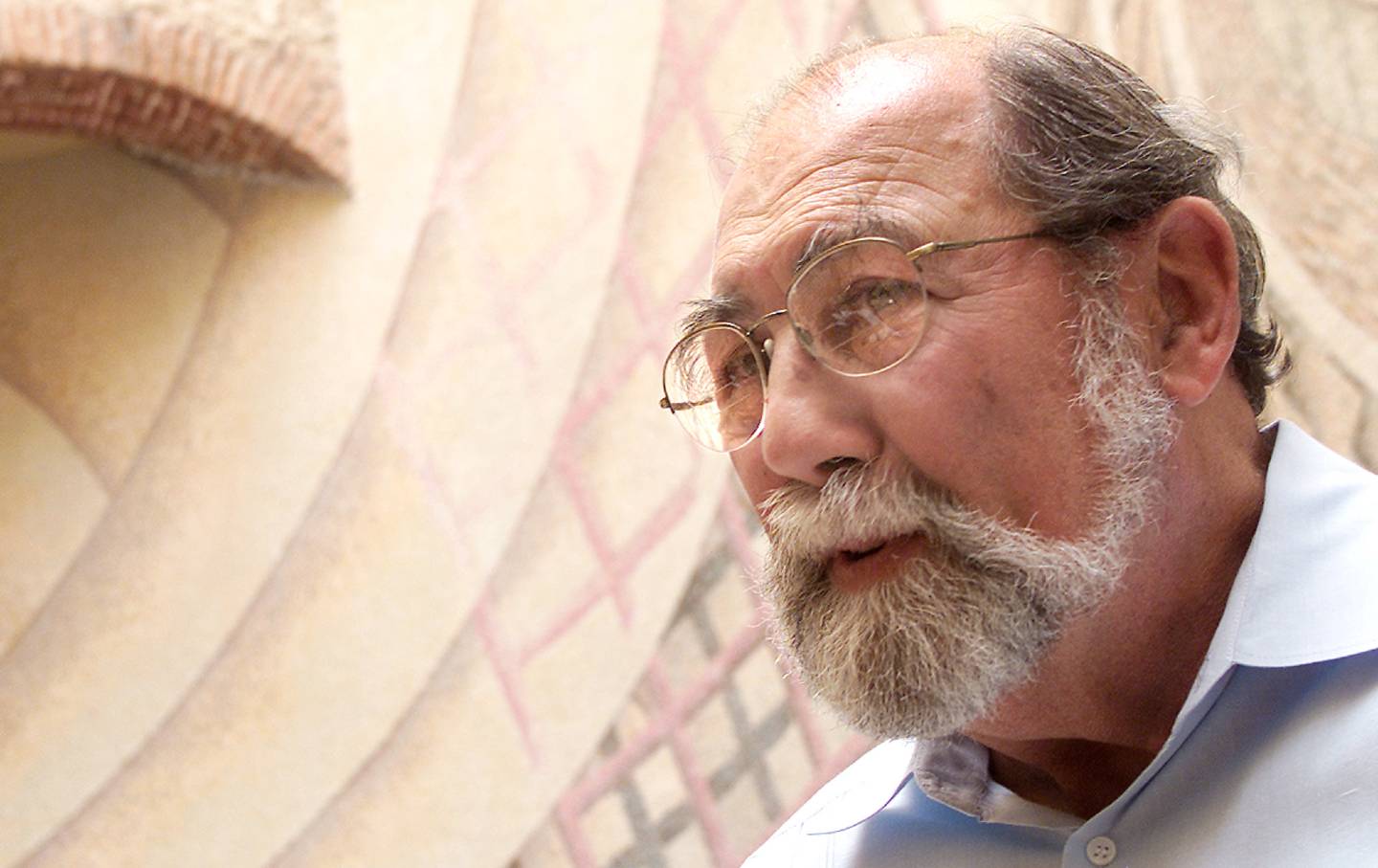Jews Say “No” to War Crimes in Their Name
An interview with a Jewish Voice for Peace activist as the group prepares for the largest action in its history—a mass rally demanding an immediate cease-fire.
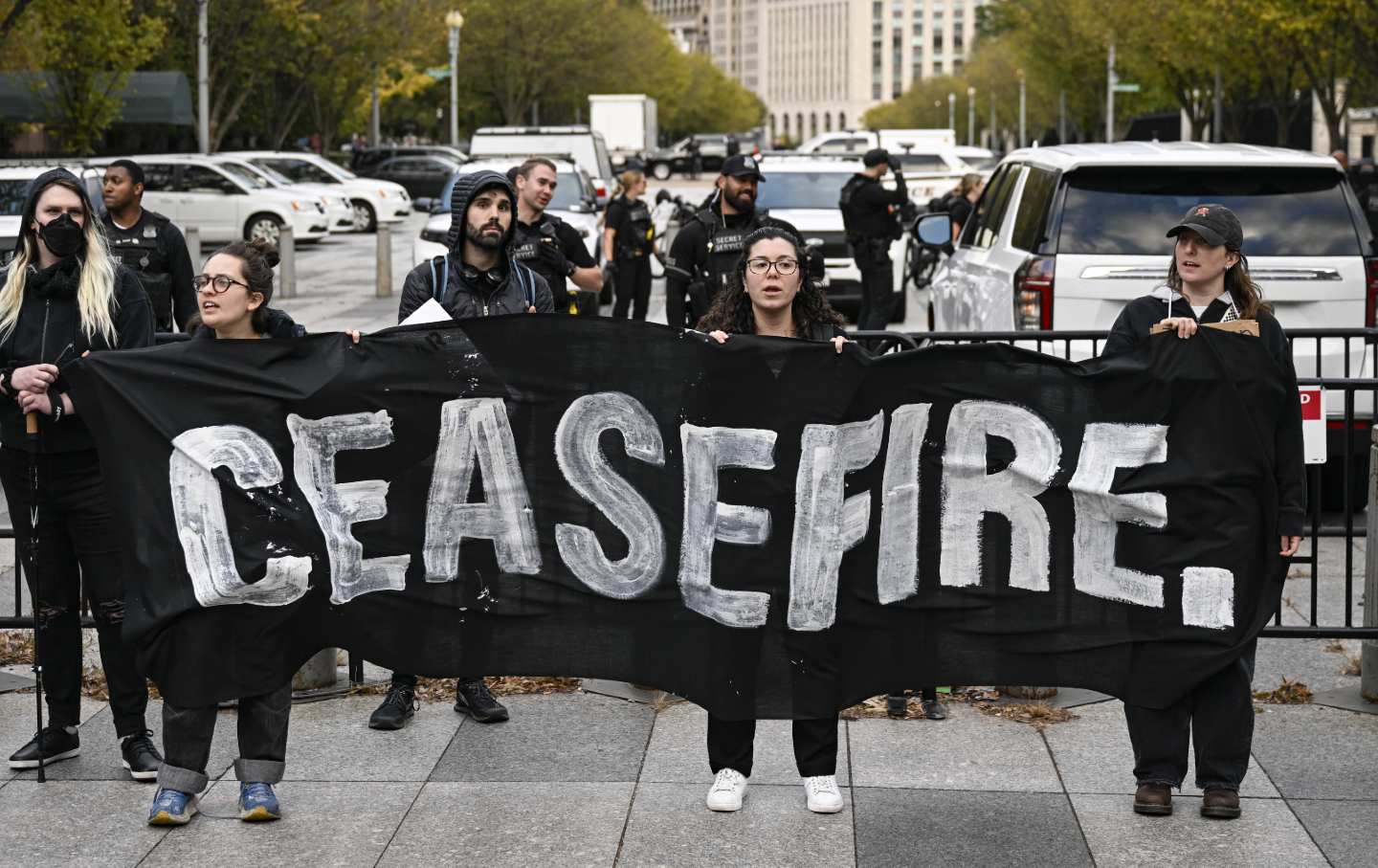
Jewish activists protest near the White House on October 16, 2023, calling for the US to demand an immediate cease-fire.
(Celal Gunes / Anadolu via Getty Images)As the people of Gaza endured perhaps the most harrowing day of Israel’s assault on the besieged Strip, reeling from a bombing that killed hundreds of civilians sheltering in a hospital, and as President Joe Biden, newly arrived in Israel, shared a warm embrace with Prime Minister Benjamin Netanyahu, a group of American Jews gathered in Washington, D.C., to demand an immediate cease-fire. Today’s action—a thousands-strong protest, set to start at noon—is part of a week of actions by Jewish Voice for Peace and IfNotNow, Jewish-led organizations that have chosen to channel their grief over Hamas’s massacre of Israeli civilians into calls to stop what many are calling a genocide attempt against Palestinians.
On Monday afternoon, I spoke to Jay Saper, a member of Jewish Voice for Peace, to learn about why they had traveled from Brooklyn to D.C. to take part in today’s protest. Saper is an artist, educator, organizer, and Yiddishist who translates poetry from Eastern Europe’s ghettos and creates contemporary Yiddish theater. As we spoke, a contingent of Jewish activists were busy shutting down the entrances to the White House, calling on Biden to negotiate an end to the bombing. Our conversation has been edited for length and clarity.
Lizzy Ratner: Where am I finding you right now?
Jay Saper: I’m currently in Washington, D.C., organizing a mass mobilization of Jews coming from across the country to take our voices to Congress and call for an immediate cease-fire. We [want to] make it clear that we, as Jews, will not see violence carried out against another people in our name, that we refuse to allow a genocide against Palestinians in Gaza to unfold.
LR: What’s it like to organize in this moment?
JS: We are organizing everything as we speak. We’ve been devoting every waking second over the past week and a half to doing everything we can to stop the bombings. When we woke up to the news last Saturday [October 7, the day of the Hamas massacre], at the Simchat Torah celebration in Brooklyn that so many members of our community participate in, with over 20 congregations showing up to practice our ancient ritual, the rabbi who led that stated that she was turning it into a “stand with Israel” rally. So that day, we immediately got into organizing an alternative space for our people to grieve, but transform grief into action.
LR: Who will be joining?
JS: Thousands of Jews from all across the country will be coming to Washington, D,C,, from Los Angeles, from Michigan, from New York City, from Philadelphia, people will be traveling from near and far, are canceling their plans and inviting all of their friends to show up to rise to meet the moment of our lives, to answer the call to bring a cease-fire now.
Naomi Klein will be speaking and other members of our community who are passionate about bringing an end to further loss of life. The rest of the programming is in the works.
LR: You said you planned to “take the message to Congress.” What does that mean?
JS: We’re going to be asking Congress members to sign on to a resolution that will call for a cease-fire. And thus far, we’ve heard so many members of Congress commit to more weapons and more money to the Israeli military, which has been carrying out ruthless bombings of the people in Gaza. And so, while we will be calling for a cease-fire, we’ll also be [calling for an end] to further funding the Israelis’ violence and try to put an end to US support for the ongoing bombings of the people of Gaza.
LR: What specific roles do you think Biden and Congress can play in bringing about the cease-fire? What power do they have in this situation? I’m not asking a trick question.
JS: Every year, the US Congress sends $3.8 billion in military funding to the State of Israel. The root cause of what we are seeing unfold is, 75 years ago, 750,000 Palestinians were displaced from their homes during the Nakba. For 75 years since, the Palestinian people have been subjected to occupation and apartheid by the Israeli government. The US throughout that time has provided complicity and moral cover, and continues to do so by providing $3.8 billion in military funding to Israel. The US has the power to withhold that money, and to withhold that support to this military that is violating the dignity of the Palestinian people in carrying out a ruthless bombing and genocide against the Palestinians in Gaza.
LR: You’ve talked about how unprecedented it is—the numbers of Jews who are protesting. And yet, if you listen to the radio, watch television, read the newspaper, the message is very much the opposite. The message is that the Jewish community wants revenge.
JS: It is disturbing to see so many in the media mischaracterizing the Jewish community. So many of us are so deeply committed to not letting our own stories, our own identity, be weaponized against another people.
Last Friday, I joined thousands of Jewish New Yorkers in the largest protests of Jews in support of Palestinian freedom in history. Thousands took to the streets of Brooklyn, marching to Senator Schumer’s home as he prepared for a trip to Israel, pledging more money and military weapons to the Israeli military that had just ordered 1.1 million people in Gaza to flee their homes. That evening, over 50 of us were arrested—youth, elders, rabbis and elected officials. We put our bodies on the line to call out for an immediate cease-fire. The NYPD used city buses, because it was such a mass arrest, they needed multiple buses to take us to the jail.
LR: Jewish Voice for Peace has planned a massive event in the capital. But what do people do who can’t make it to D.C. to protest?
JS: Right now, there’s protests happening really everywhere in the country. People can flood the [phone] lines of Congress while we show up at the steps. They can invite their friends to join us in Washington, D.C. Because, despite what the president and Congress currently say, when people collectively leverage our power, we can show up in this moment of history to say that we did everything that we could to try to stop a genocide.
LR: Why are you personally in Washington, D.C.?
JS: I’m here because last summer, I traveled to visit the town where my grandmother’s family comes from in Yos, Romania. It’s the birthplace of the Yiddish theater. When I was there, last summer, I reflected on all the vibrant life and culture that flourished there. And then I walked upon the cobblestone courtyard where that entire community was killed. An entire people, culture, community all slaughtered. I create Yiddish theater in New York City to honor their lives and to keep that culture alive. I translate Yiddish poetry to share the voices from ghettos with the world. And I hear such an aching echo in their call for the world to show up when the world showed such indifference to genocide. And so I feel like my commitment to honor my grandmother and her community and her story, as the descendant of people who survived a genocide, is to make sure that I do everything that I would have wanted other people to have done for me.
I was in Warsaw a few summers ago as well, and etched in the wall of the Jewish Historical Institute is a line from one of the letters [from the Emanuel Ringelblum archive] that was buried in the ground [of the Warsaw Ghetto] so that, if the people were killed, their memory would live, history could be told about them. And that line said, That which we could not cry out to the world we buried in the ground…so that others could cry out. And as somebody who translates Yiddish poetry, who teaches Yiddish, who creates Yiddish theater, I dedicate my life to bringing their stories to the world. And right now, it’s a moment where we are not just reflecting on history but have the choice and the possibility to intervene to change the course of history—so there isn’t only an archive left of a community and a people, but there is a living, flourishing culture.
Thank you for reading The Nation
We hope you enjoyed the story you just read, just one of the many incisive, deeply-reported articles we publish daily. Now more than ever, we need fearless journalism that shifts the needle on important issues, uncovers malfeasance and corruption, and uplifts voices and perspectives that often go unheard in mainstream media.
Throughout this critical election year and a time of media austerity and renewed campus activism and rising labor organizing, independent journalism that gets to the heart of the matter is more critical than ever before. Donate right now and help us hold the powerful accountable, shine a light on issues that would otherwise be swept under the rug, and build a more just and equitable future.
For nearly 160 years, The Nation has stood for truth, justice, and moral clarity. As a reader-supported publication, we are not beholden to the whims of advertisers or a corporate owner. But it does take financial resources to report on stories that may take weeks or months to properly investigate, thoroughly edit and fact-check articles, and get our stories into the hands of readers.
Donate today and stand with us for a better future. Thank you for being a supporter of independent journalism.

